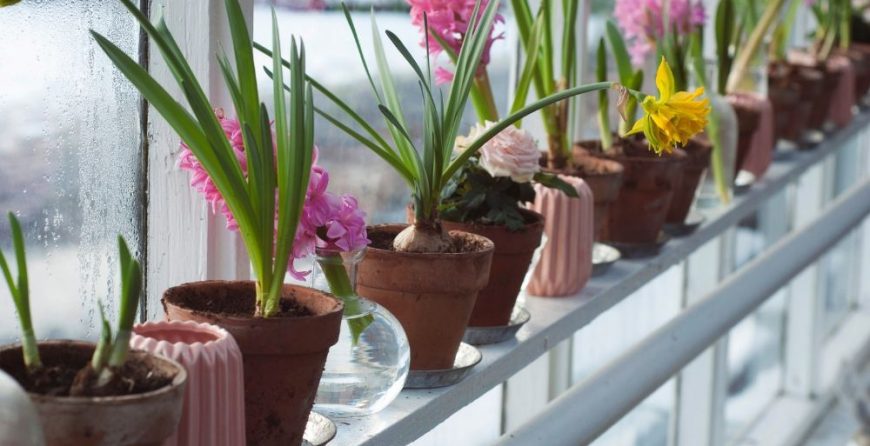Keeping a garden healthy must be accompanied by the correct things to do in order to maintain it in good condition. Who would want to see their plants dying slowly? No gardener would like that.
How to keep your garden healthy?
Follow these following tips on how you can keep your garden healthy and start incorporating it in your office garden, school garden, community garden or house garden.
-
Before Buying, Examine the Plants Carefully
Prevention is always better than cure, so for your garden not to get a disease do not introduce one. You might want to add a new member in your garden but make sure to examine it thoroughly. If you don’t check the new plant vigilantly, you may be bringing a disease through it to your beloved garden. So be keen as much as possible.
It will be good for you to buy books, catalogs, and magazines which shows what a healthy plant should look like. Do not bring a plant with dead spot, insects, and rotted roots and stems at home. They can be contagious and hard to get rid off.
-
Keep an Eye for Bugs
Bugs may be cute at times but they’re a no-no for your plants. Through the small openings created by bugs – virus and diseases can sip in your plants. This wreaks havoc to your garden.
What are the common bugs that cause diseases to plants?
One of the most common virus and disease carrier are aphids. Insect attacks can cause stress to your plants and soon cause their death. So always keep an eye for bugs around your plants and act immediately.
-
Apply the Right Fertilizer
Too much fertilizer can burn the roots of your plants and decrease the roots ability to absorb water. This can make your plants resistant to diseases, heat, cold and drought.
An overabundance of nutrients is also a way stress to your plants – because too much isn’t always good. Too much but fewer nutrients can hurt your plants.
Don’t know how to assess if your soil needs fertilizer?
You can get a soil test to know exactly how much you need to put into your soils to make sure that your plants are fed correctly.
-
Make Sure to Use a Fully Composted Yard Waste
Take note that not all compost pile decompose at the same time. With thorough composting the pathogens that can harm your plants die. A compost pile of an infected plant that did not undergo thorough composting may reintroduce the disease to your healthy plant. So be careful of this.
So If you’re unsure of the state of your compost pile, do avoid using yard waste to prevent diseases for your plants. Make sure to avoid adding infected debris to your compost pile.
-
Add Disease-resistant Variety
A disease-resistant plant doesn’t succumb to the infection, instead, it fights off the disease. As an example, a variety of tomatoes that has VFN resistant can fight off fungi Verticillium, Fusarium, and Nematodes.
Unfortunately, not all plant packaging has an indication if that plant is disease-resistant. You may refer to catalogs and books to see the list of disease-resistant plants.
-
Select and Place Your Plants Accordingly
Plants have different demands when it comes to sunlight, water, and nutrients. For example, a shade-loving plant like azalea will not grow properly under a full sun location. So place your plants according to their specification.
Placing your plants on the correct location can help them when disease tries to attack them. As they are not under stress they can fight off diseases accordingly.
-
Do Not Over Crowd
Overcrowded plants compete for nutrients and may lead other plants to die because of lack of nutrients. Thus, it is important to give the correct spacing.
Weak plants due to lack of nutrients are susceptible to diseases. To lessen possible problems, trim out crowded and damage plants. Moreover, divide and rearrange your plants as needed.
-
Clean Up During Fall
Cleaning your garden during fall can help prevent diseases from developing into your plants. Dead leaves and debris can introduce diseases as they decompose. Remove them immediately before it kills your garden.
-
Trim At the Right Time
Trim damaged limbs, trees, and shrubs in the late winter. Do not wait until spring. Damaged limbs can acquire disease at winter season and may spread all over the plant. Cutting them will prevent the spreading of possible diseases.
Don’t ignore broken limbs. Cut them before it becomes a bigger problem. Make sure to use sharp tools to create a clean cut that will heal fast.
-
Correctly Water Your Plants
Diseases need water too as much as plants need it. That is why properly watering your plants has a big difference. To avoid giving diseases a way to grow and spread pick a watering method that will limit too much moisture on your plant’s foliage. Hoses and soakers do the trick. If you’re watering by hands, make sure to water directly onto the soil and avoid the leaves.
These are just a few of the things you need to do to keep your garden in a healthy condition. Hopefully, you can apply these methods on your garden. Do you have other ideas? Come on and share it with us!
Happy gardening!


